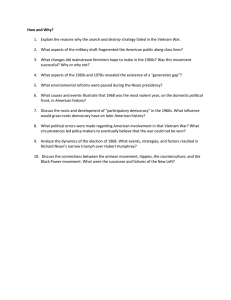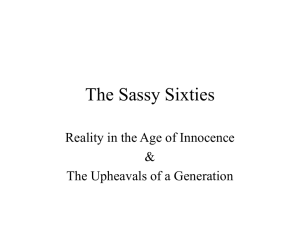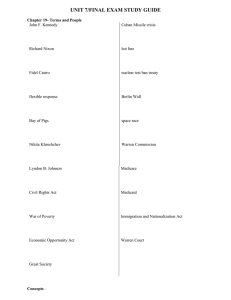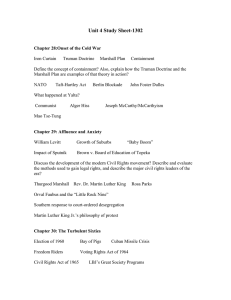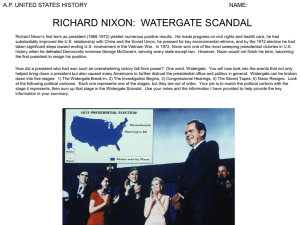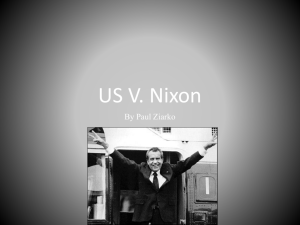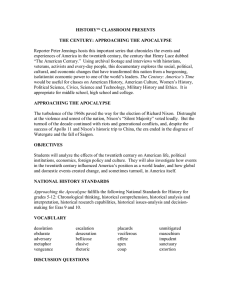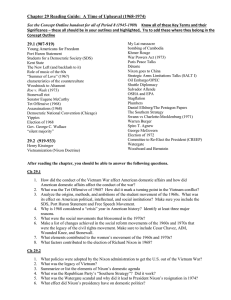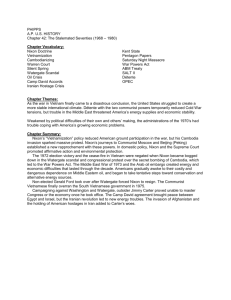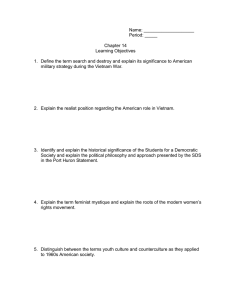The Crisis of Authority: 1960s-70s US History Outline
advertisement
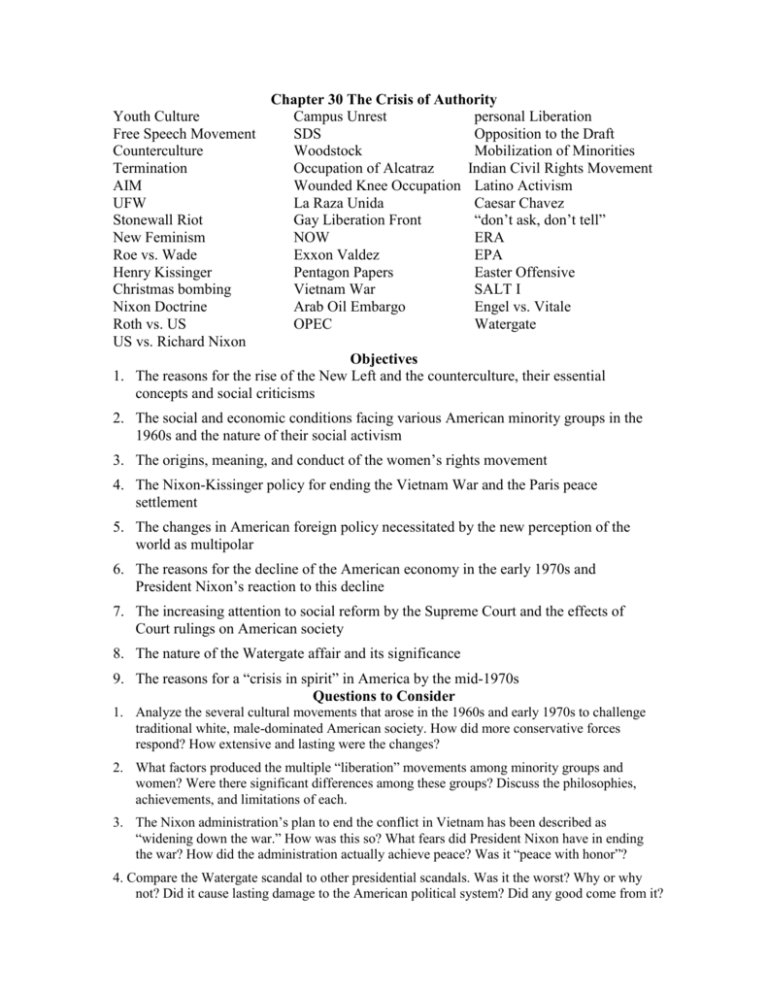
Chapter 30 The Crisis of Authority Youth Culture Campus Unrest personal Liberation Free Speech Movement SDS Opposition to the Draft Counterculture Woodstock Mobilization of Minorities Termination Occupation of Alcatraz Indian Civil Rights Movement AIM Wounded Knee Occupation Latino Activism UFW La Raza Unida Caesar Chavez Stonewall Riot Gay Liberation Front “don’t ask, don’t tell” New Feminism NOW ERA Roe vs. Wade Exxon Valdez EPA Henry Kissinger Pentagon Papers Easter Offensive Christmas bombing Vietnam War SALT I Nixon Doctrine Arab Oil Embargo Engel vs. Vitale Roth vs. US OPEC Watergate US vs. Richard Nixon Objectives 1. The reasons for the rise of the New Left and the counterculture, their essential concepts and social criticisms 2. The social and economic conditions facing various American minority groups in the 1960s and the nature of their social activism 3. The origins, meaning, and conduct of the women’s rights movement 4. The Nixon-Kissinger policy for ending the Vietnam War and the Paris peace settlement 5. The changes in American foreign policy necessitated by the new perception of the world as multipolar 6. The reasons for the decline of the American economy in the early 1970s and President Nixon’s reaction to this decline 7. The increasing attention to social reform by the Supreme Court and the effects of Court rulings on American society 8. The nature of the Watergate affair and its significance 9. The reasons for a “crisis in spirit” in America by the mid-1970s Questions to Consider 1. Analyze the several cultural movements that arose in the 1960s and early 1970s to challenge traditional white, male-dominated American society. How did more conservative forces respond? How extensive and lasting were the changes? 2. What factors produced the multiple “liberation” movements among minority groups and women? Were there significant differences among these groups? Discuss the philosophies, achievements, and limitations of each. 3. The Nixon administration’s plan to end the conflict in Vietnam has been described as “widening down the war.” How was this so? What fears did President Nixon have in ending the war? How did the administration actually achieve peace? Was it “peace with honor”? 4. Compare the Watergate scandal to other presidential scandals. Was it the worst? Why or why not? Did it cause lasting damage to the American political system? Did any good come from it?
